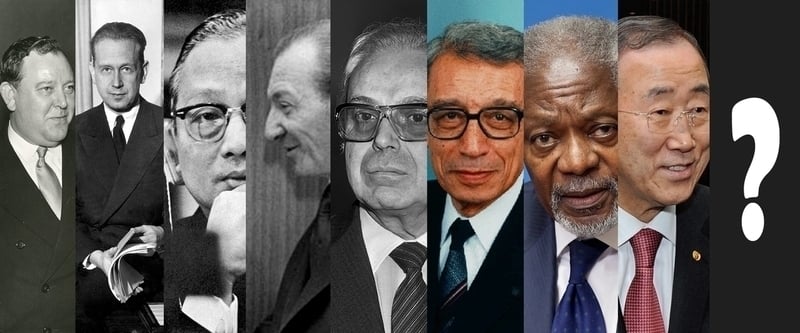
By Matthew Barbari
With Ban Ki-Moon’s term as Secretary-General (SG) ending this year, many candidates have been put forward to replace him. Due to the tradition of rotating the region from which the SG is selected, this year the spotlight has been placed on Eastern Europe. There are also calls for a woman SG—the first since the organization’s creation in 1945.
As stated by UN General Assembly President Mogens Lykketoft, this election will be the most transparent to date. In the past, the election process was conducted behind closed doors and under the watchful eyes of the UN Security Council. While this election has already had public nominations as well as informal discussions between the General Assembly and each of the candidates, it is still ultimately the responsibility of the Security Council to select the SG.
Irina Bokova of Bulgaria is a popular choice to replace Ban Ki-Moon as she fills three essential requirements: she is from the region whose “turn” it is to hold the position, she has experience working in the system—going into her sixth year as the Director-General of UNESCO—and is one of the leading women in the UN. She is also the most favored candidate by Russia, who holds sway due to its veto power in the Security Council.
The prime minister of Moldova, Natalia Gherman, is also a popular candidate as she is both a woman and from Eastern Europe. However, her inexperience within the UN makes her bid less likely, despite the support she receives from Western countries such as the UK and U.S.
While Vuk Jeremic would continue the trend of having a man at the organization’s highest office, he does have years of relevant experience working as the President of the UN General Assembly and as Serbia’s minister of foreign affairs.
Many General Assembly members have voiced their dissatisfaction toward the current crop of Eastern European nominees. As a result, this has led to growing support for two candidates from outside the region, claiming that geography should not play a role in the selection process—especially if it leads to a subpar candidate.
Helen Clark, the current Administrator for the United Nations Development Programme and former Prime Minister of New Zealand, is a name that has been floated around. She has strong connections to the U.S. and UK, as well as China. In addition, she has years of experience at the UN, with many seeing her as a more qualified leader than other candidates.
Another “outside candidate” is Antonio Guterres who served as United Nations High Commissioner for Refugees and is a former Prime Minister of Portugal. Guterres has an impressive resume, and is the most well equipped candidate to face the current refugee crises, which are a main concern for Europe and the Middle East.
The major roadblock to him or Clark is the UN tradition of selecting an SG from a certain region, as well as a possible veto from Russia, which wants to see an SG that is amenable to its interests. While Moscow has publically stated that it would not veto a candidate selection solely on the geographical criteria, this strategy was previously employed by Beijing, helping Ban Ki-Moon back in 2007, when China threatened to veto any candidate who was not from Asia. The Security Council is expected to select its nominee in July with the election in the General Assembly happening in September.
Recommended Readings
Somini Sengupta, “At U.N., Ambassadors Hold Auditions for Next Secretary General,” The New York Times (Apr. 15, 2016).
Reid Standish, “Will the Next U.N. Secretary-General Be From Eastern Europe?” Foreign Policy (Apr. 29, 2016).
“Selecting a new UN Secretary-General: a job interview in front of the whole world,” UN News Centre (Apr. 8, 2016).